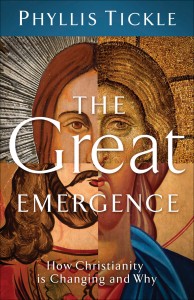Film: Ordinary Radicals

To bad I won’t be in town for this. But if you are Christian living in Toronto or within GTA, I strongly encourage you to go!
From EmpiredRemixed:
On Friday November 14th [New date], we will be screening the Ordinary Radicals film at the Bloor Cinema in downtown Toronto. Director Jamie Moffett will be with us in the audience, and ready to answer your questions after the film.
Jamie compiled much of the footage from this film while touring with Shane Claiborne and Chris Haw on their Jesus for President tour, including their stop in Toronto at the end of June.
The film features interviews with: Becky Garrison, Shane Claiborne, Jim Wallis, Brian McLaren, Tony Campolo, Rob Bell, John Perkins, Brooke Sexton, Michael Heneise, St. Margret Mckenna, Logan Laituri, Zack Exley, Aaron Weiss and our very own Brian Walsh.
You can purchase tickets for this event here.
Here’s a quick synopsis of the film:
In the margins of the United States (and Canada), there lives a revolutionary Christianity. One with a quiet disposition that seeks to do “small things with great love,” and in so doing is breaking 21st Century stereotypes surrounding this 2000 year old faith. “The Ordinary Radicals” is set against the modern American political and social backdrop of the next Great Awakening. Traveling on a tour to promote the book “Jesus for President”, Shane Claiborne and a rag-tag group of “ordinary radicals” interpret Biblical history and its correlation with the current state of American politics. Sharing a relevant outlook for people with all faith perspectives, director Jamie Moffett examines this growing movement.
As Shane Claiborne and Chris Haw write in the book, “This is not a set of political suggestions for the world; this is about invoking and embodying the alternative. All of this is an invitation to join a peculiar people- those with no king but God, who practice jubilee economics and make the world new. This is not the old-time religion of going to heaven; this is about bringing heaven to the world.”
[link]

